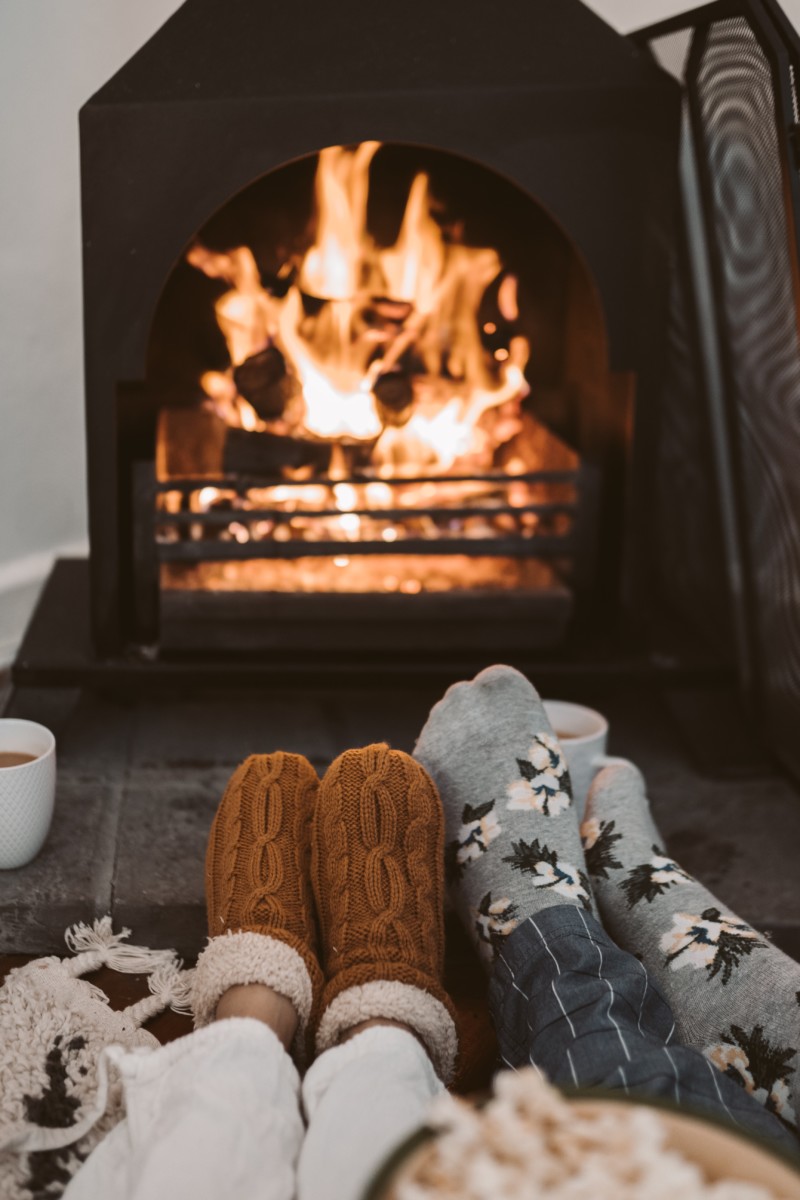The cold season is slowly sneaking up on us, but we are often caught off guard without prior planning when the weather suddenly changes.
Yet if we use the time we have to prepare adequately, we won’t be left shivering right inside our own homes. So, use the remaining weeks of May to ensure that you and your family will be warm and comfortable in the upcoming chilly months.
1. Banish dust
By deep cleaning your home, you can create a healthy living environment for your family. Cold weather means windows and doors stay shut, and heaters are switched on, which results in decreased air quality.
Make sure a dust-filled interior doesn’t add an additional problem. Especially check curtains, lampshades, lights, and carpets—all of which attract dust.
Carpets, especially, are dust magnets. They may feel great underfoot, but they act as a trap for dirt, hair, and dust mites.
Humans lose around 1 million skin particles and between 50–100 strands of hair every day, and even air pollutants like pollen, fungi, and cigarette smoke get trapped in carpet fibres. This can trigger allergies, asthma, and eczema attacks.
Experts say that it’s best to vacuum carpets and rugs at least twice a week, and more often in high-traffic areas. Doing a thorough deep clean may mean getting in extra help, so consider hiring a SweepSouth cleaner to assist you.
2. Seal draughty openings
Keep the heat inside and stop cold air from making its way through any gaps in window frames and doors advises Alen Ribic of SweepSouth.
“A draughty house is expensive to heat and hard to keep cosy. Even a small draught can make a room a lot colder, so find and seal leaks. If you can see daylight around a door or window frame, there’s a leak.”
To spot smaller air leaks, especially around windows, hold a lit candle near the area—if the flame flickers, a draught is near. Add inexpensive weather seals to doors to draught-proof them and use acrylic sealant to fill small holes or cracks between window frames and the surrounding walls.
3. Heating options
Heaters are a popular option for adding warmth in most Kenyan homes, so if you have one, ensure that it’s in good working condition beforehand.
If you don’t, consider buying one as they are readily available in various home appliance shops, supermarkets, and online stores. Hot water bottles are another option, but caution must be applied when using them to avoid burns.

For those with a fireplace, whether gas, electric, or wood-burning, a poorly maintained fireplace can cause house fires or other dangers.
Schedule a professional to clean the chimney or flue of soot and any debris; they’ll also check that the fireplace is in good working order and address any issues before they become hazardous.
4. Fix outdoor lights
Leaving for work early or arriving after sunset? During the cold season, evenings draw in earlier, the sun comes up later, and it will probably be dark outside when you leave or get back home.
Make sure that all the outdoor lights are working so that your house has a well-lit exterior—a great security feature, especially on dark and foggy nights.
“A few solar lights around your property will ensure the exterior stays lit even during the occasional power blackouts,” says Ribic.
Mount them along walkways to illuminate the route to your car, or on the wall outside your front door, and place the solar panels in a sunny location. If you’re good at DIY, mounting lights will be an easy task, but if you need help, find a trusted professional. SweepSouth also has a reliable list of handymen, electricians, and plumbers in Nairobi.
5. Quick fixes
Adopt techniques from previous generations. For example, you could sew a long cylindrical tube-shaped piece of fabric, fill it with dry stuffing such as uncooked rice or lentils, and place it at the foot of any door with a gap beneath it. This will prevent heat from escaping or cold air from entering.
Other ideas include swapping sheer curtains for heavier, lined ones, and layering cold floors with rugs as bare floors contribute significantly to heat loss. You can also add additional duvets and comforters to keep your bed warm or use these to cuddle up on the couch.
Do all you can to fix the problems that make your house feel cold, concludes Ribic. “Not only will it greatly contribute to your overall feeling of wellbeing, but because heating your home accounts for such a big part of a household’s energy consumption, you’ll be saving money and doing your bit for the planet, too.”




